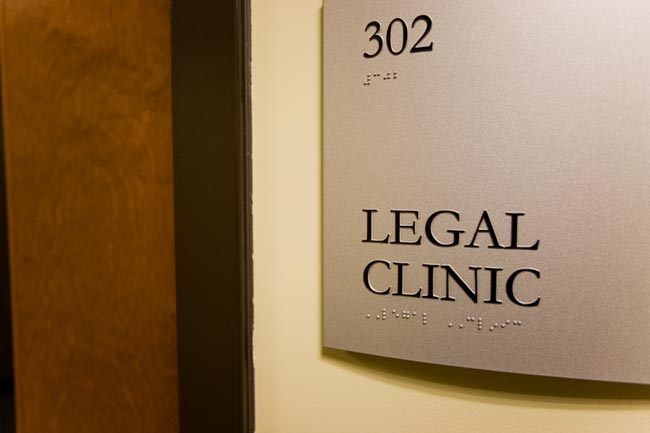How to Find Quality Legal Clinics
Legal clinics are offered by most law school programs. For many students, these clinics can play an integral role in their law school experience and offer practical legal experience in a wide array of issues.
“Most clinical programs consist of both practice and classroom components,” according to the American Bar Association. “Some clinics offer community legal services for the poor, while others may be structured around a specific substantive area, such as health law or non-profit law.”
US News recently offered insight into what prospective law students can expect from legal clinics and how they can identify signs of a clinic’s strengths and weaknesses.
WHAT TO EXPECT
While participating in a legal clinic isn’t required, doing so can help bolster your resume and give you real-world experience.
“They get to engage with clients, they learn about confidentiality and other things,” Krystal N. Lyons, general counsel and legal services director for San Bernadino County Superior Court and former professor at the University of La Vern College of Law in California, says. “It complements the other aspect of their legal education.”
Clinical work varies depending on the type of clinic, but some allow students to take on real legal responsibilities for real legal cases.
“Many clinical students are working with clients who would not otherwise have access to an attorney or on issues to address the systemic oppression in our society,” says Christine Cerniglia, associate professor of law and director of clinical and experiential education at Stetson University College of Law in Florida. “Each clinic class challenges students to apply the legal theory while analyzing the structural issues and balancing the humanity of the client’s case.”
HOW TO FIND STRONG CLINICAL PROGRAMS
If you’re interested in participating in a legal clinic in law school, it’s important to research what clinics are available at the law schools you’re applying to.
Gabriel Kuris, founder of Top Law Coach, recommends looking at a laws school’s website and searching for clinics with a focus on high-profile issues.
“Once you’re down to some schools you are accepted to or excited about, I would suggest reaching out to professors or to students who are in the clinics, or other connections, to learn more about what the work of the clinic is like,” he says. “When you are first applying, be mindful about clinics. When you start law school, ask around, especially instructors, and start thinking ahead to which clinic will best fit your goals.”
What are signs of a strong legal clinic? For one, a quality clinical program will always have a “full-time dedicated faculty members working on real cases and legal issues who are trained in both teaching in the classroom space and practicing in their respective legal field,” Cerniglia says.
Additionally, a quality clinical program should have easily assessable metrics around their work.
“A clinic is really a law firm at the school,” Lyons says. “You evaluate them the same way you evaluate a good law firm: Do they keep good data, do they provide service to the community, how many people do they service, do people know about them, do they have good metrics for evaluating student performance?”
Keep an eye out for clinics that have issues with the state bar and inadequate funding. These are indicators of poor quality programs.
“Weak clinical programs may not have the same institutional support or full-time faculty, or there is a larger student-teacher ratio,” Cerniglia says. “The best practice is between 5-10 students in the clinic course for every one professor. While some schools may say this type of classroom structure is expensive, that theory should be challenged to inquire where the institution invests funds.”
Sources: US News, American Bar Association


Questions about this article? Email us or leave a comment below.